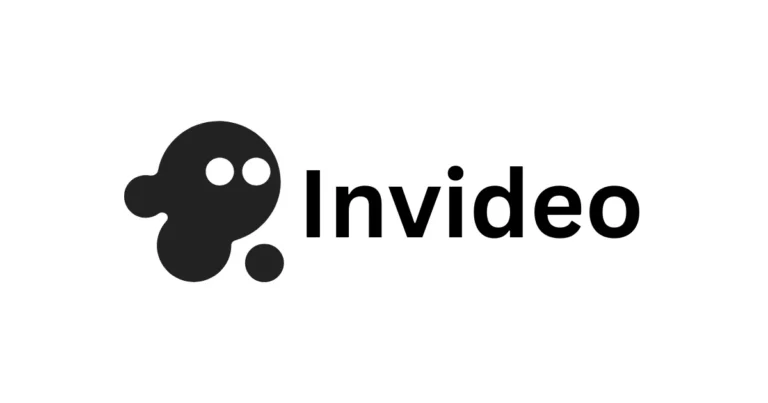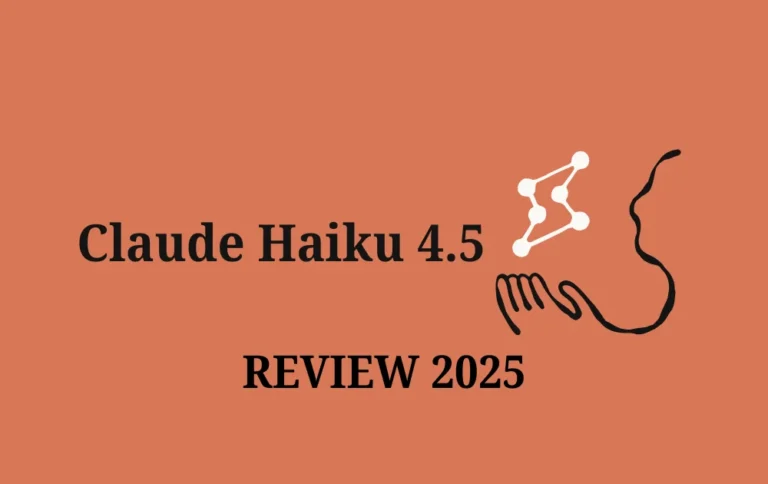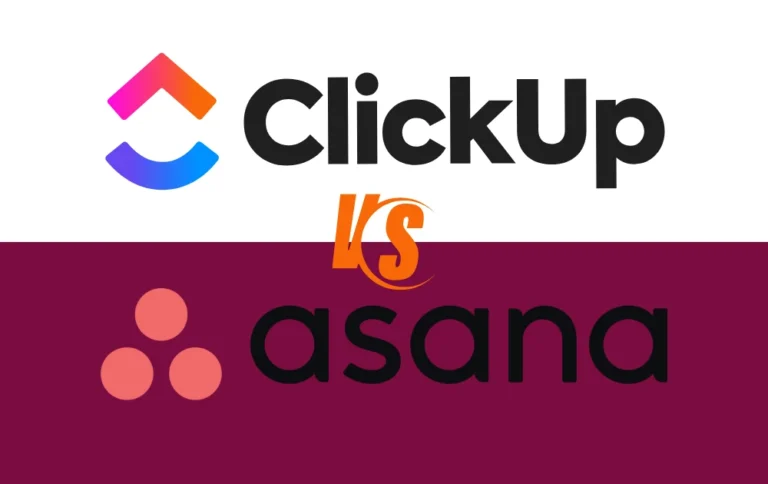VibeScan Review (2025): A Deep Dive into the AI Code Safety Net
AI code generation from tools like GitHub Copilot is a double-edged sword. It grants us unprecedented speed but introduces a deep, nagging uncertainty. Every developer using AI today is asking the same question: “Is this code truly safe to ship?”
VibeScan, a new tool making waves after a stellar Product Hunt launch, aims to solve this problem directly. It’s not just another linter; it’s a dedicated safety net for the age of vibe coding.
In this definitive guide, we will go beyond the marketing hype to provide the most in-depth VibeScan review on the internet. We’ll analyze VibeScan’s core features, walk through its workflow, evaluate VibeScan pricing, and give you a clear verdict on whether it’s a must-have tool for your 2025 development stack.
Table of Contents
- The Dangerous New Normal: Why ‘Vibe Coding’ Needs a Watchdog
- What is VibeScan? An In-Depth Look at the Core Features
- How to Use VibeScan: A Step-by-Step Walkthrough
- Who is VibeScan For? Identifying the Ideal User Profile
- VibeScan Pricing: A Full Cost-Benefit Analysis
- The Founder Factor: Trust in the Age of AI
- VibeScan Alternatives & How It Compares
- Frequently Asked Questions
- The Final Verdict: Is VibeScan a Must-Have Tool in 2025?
The Dangerous New Normal: Why ‘Vibe Coding’ Needs a Watchdog
The Speed Trap of AI Code Generation
The seduction is undeniable. Tools like Copilot, Claude, and ChatGPT can generate hundreds of lines of functional code in seconds. What used to take hours of careful implementation now happens with a simple prompt. The pressure to ship features faster has never been more intense, and AI seems like the perfect solution to meet those impossible deadlines.
But this speed comes with a hidden cost. We’re trading deliberate, thoughtful coding for rapid iteration. The dopamine hit of watching AI generate complex functions instantly is addictive, but it’s creating a new kind of technical debt that’s harder to spot and more dangerous than traditional code smells.
The “Black Box” Problem
This is where the “Russian Roulette” analogy becomes painfully accurate. You have code that works perfectly in your development environment. It passes your basic tests. It does what you wanted it to do. But you don’t truly understand why it works, or more importantly, where it might break under real-world conditions.
The AI that generated your authentication system doesn’t understand your specific security requirements. The database queries it wrote don’t account for your actual data volumes. The API integrations it created might work with test data but fail catastrophically with edge cases in production.
Real-World Consequences of Unchecked AI Code

The consequences of this blind trust can be devastating. On the security front, AI-generated code frequently contains hard-coded API keys, SQL injection vulnerabilities, or improper authentication logic. These aren’t theoretical risks—they’re the exact types of oversights that lead to data breaches making headlines.
Performance issues are equally problematic. AI might generate N+1 database queries that work fine with ten users but crash your servers with a thousand. It might create inefficient loops that seem fast during development but become bottlenecks at scale. It often lacks proper caching strategies, leading to unnecessary server load and poor user experience.
The financial impact can be immediate and severe. A single security breach can cost thousands in incident response, not to mention the reputation damage. Performance issues can drive away users and require expensive infrastructure scaling to compensate for inefficient code.
What is VibeScan? An In-Depth Look at the Core Features

More Than a Linter: An Automated Code Reviewer
VibeScan occupies a unique position in the development toolchain. Unlike traditional linters such as ESLint that focus on code style and basic syntax issues, VibeScan analyzes the logic and security implications of your code. Think of it as having a senior developer review every line of your AI-generated code, but with the consistency and thoroughness that human reviewers often lack.
VibeScan is designed specifically for the AI coding era, understanding the types of mistakes that language models make when they lack full context about your application’s architecture and requirements.
The Security Scanner: Your Digital Sentry
The VibeScan security scanner goes far beyond generic vulnerability detection. Based on the VibeScan dashboard, it’s specifically designed to catch issues like:
- Exposed API Key – Critical for preventing unauthorized access
- SQL Injection Risk – Protecting against database compromises
- Authentication Bypass – Ensuring proper user verification
Each of these represents a critical threat that could compromise your entire application. Exposed API keys are particularly common in AI-generated code because the AI doesn’t understand the difference between example code and production-ready implementations.
The Performance Auditor: From Sluggish to Snappy
The VibeScan performance analysis focuses on user experience impact, identifying code patterns that will slow down your application under real-world conditions. VibeScan examines database query patterns, API call efficiency, and resource loading strategies to pinpoint bottlenecks before they affect users.
This is particularly valuable because AI-generated code often prioritizes functionality over optimization. The AI creates code that works, but it doesn’t consider whether that code will scale or perform well under load.
The Launch Checklist: Your Pre-Flight Go/No-Go
This feature sets VibeScan apart from every other code analysis tool on the market. VibeScan moves beyond code quality to examine business-critical components that are essential for a successful launch.
How to Use VibeScan: A Step-by-Step Walkthrough
Step 1: Connecting Your Codebase
VibeScan offers two primary integration methods. You can upload your codebase directly through their interface, which works well for small projects or one-time scans. However, the recommended approach is connecting your GitHub repository, which provides several advantages.
GitHub integration allows VibeScan to automatically scan new commits, ensuring your code quality doesn’t degrade over time. You can scan specific branches, which is invaluable for feature development workflows.
Step 2: The VibeScan Dashboard Explained
The VibeScan dashboard presents three key metrics that provide a comprehensive view of your code quality:
- Security Score – Indicates how well your code protects against vulnerabilities
- Performance Score – Evaluates efficiency under real-world conditions
- Code Quality Score – Examines overall maintainability and best practices
The “VibeScan Verified” badge provides third-party validation of your code quality, which can be powerful when presenting work to clients or stakeholders.
Step 3: Fixing Issues with AI Assistance
When VibeScan identifies an issue, it provides two powerful options:
Auto-Fix Button: Automatically generates and applies solutions for common problems like exposed API keys or basic performance optimizations.
Explain Button: Provides detailed information about why the issue exists and how to fix it manually. This educational component helps build knowledge for avoiding similar issues in future AI-generated code.
Who is VibeScan For? Identifying the Ideal User Profile
The Indie Hacker & Solopreneur
This is VibeScan’s sweet spot. Indie hackers and solopreneurs need to move fast but often lack access to dedicated security expertise or code review resources. They’re building products quickly, often using AI assistance extensively, and need confidence that their code is production-ready.
VibeScan acts as a virtual teammate, providing the security and performance expertise that would otherwise require hiring senior developers or expensive consultants.
The Freelance Developer
Freelancers can leverage VibeScan as a competitive advantage and professional differentiator. A clean VibeScan report serves as objective proof of code quality when delivering projects to clients.
The tool also protects freelancers from liability issues by demonstrating professional-grade analysis, reducing the risk of post-delivery security or performance problems.
Who is VibeScan NOT For?
VibeScan Pricing: A Full Cost-Benefit Analysis
| Plan | Price | Projects | Scans/Month | Key Features |
|---|---|---|---|---|
| Starter | $13.30/mo | 5 | 50 | Basic scanning |
| Pro | $34.30/mo | Unlimited | 100 | Auto-Fix, Priority support |
| Ultra | $69.30/mo | Unlimited | 500 | API access (coming soon) |
Analyzing the Tiers
The VibeScan Starter Plan serves as the entry point for hobbyists or developers managing just a few personal projects. The VibeScan Pro Plan represents the sweet spot for most professional developers and freelancers, with unlimited projects and the Auto-Fix feature providing significant time savings.
The VibeScan Ultra Plan targets power users, agencies, or developers managing high-velocity development teams, with upcoming API access enabling automated scanning as part of CI/CD pipelines.
The 30% Lifetime Discount: An Early Adopter’s Advantage
The Founder Factor: Trust in the Age of AI
The fact that VibeScan was created by Volo, a public figure in the AI coding community with over 25,000 YouTube subscribers, provides significant credibility and reduces purchase risk. Unlike faceless SaaS products that could disappear overnight, Volo’s public reputation is tied to VibeScan’s success and reliability.
This transparency creates accountability that’s rare in the development tools space, ensuring VibeScan will continue evolving to address emerging challenges in AI-assisted coding.
VibeScan Alternatives & How It Compares
VibeScan vs. Traditional Linters (ESLint, Prettier)
Traditional linters and VibeScan serve complementary rather than competing functions. ESLint focuses on code style and formatting, while VibeScan analyzes the substance of your code for security implications and performance characteristics.
The two categories should be used together – linters for clean code style and VibeScan for secure, efficient logic.
VibeScan vs. Enterprise Security Platforms (Snyk, Veracode)
Enterprise security platforms are comprehensive solutions for large organizations with dedicated security teams. They’re complex to implement and expensive to maintain. VibeScan provides core security and performance analysis without the complexity and cost of enterprise solutions.
Frequently Asked Questions
Yes, VibeScan is a tool for developers to check their code, not a tool for non-coders. VibeScan assumes you understand the technical recommendations it provides and can implement the suggested fixes.
Yes, GitHub integration is a core feature for easy code analysis. The GitHub integration streamlines the scanning process and makes it easy to incorporate VibeScan into existing development workflows.
VibeScan is a specialized tool designed specifically for security and performance audits, offering a more structured and reliable analysis than a general-purpose LLM. While ChatGPT can spot obvious issues, it lacks the systematic approach and specialized knowledge that VibeScan provides for production-ready code analysis.
VibeScan isn’t designed for large enterprise companies with dedicated DevOps and security teams. These organizations typically have complex, custom-built analysis pipelines using tools like SonarQube or Snyk. VibeScan is the agile solution for individuals and small teams who need professional-grade analysis without enterprise complexity.
The Final Verdict: Is VibeScan a Must-Have Tool in 2025?
VibeScan has brilliantly positioned itself not as a luxury, but as an essential insurance policy for the modern developer. The risks of shipping buggy or insecure AI code are too high to ignore, and the cost of remediation far exceeds the price of prevention.
For the solo developer, freelancer, or small team, the cost of VibeScan is minuscule compared to the potential cost of a single security breach or performance crisis. VibeScan provides confidence, safety, and a professional workflow that transforms AI-assisted development from a risky gamble into a reliable process.
VibeScan isn’t just a tool; it’s the seatbelt for your AI-powered car. In 2025, you shouldn’t be driving without it.







